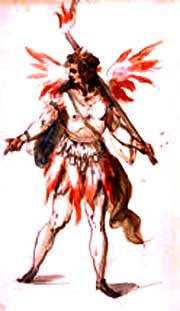EN251: BRITISH LITERATURE I

Fall Semester 2006
Section A: Tuesday and Friday 8:00-9:15 AM in CNS 15
Section B: Tuesday and Friday 12:30-1:45 PM in CNS 15
Click here for the course syllabus.
Instructor: Robert Epstein
Office: 120 Donnarumma Hall
Office Hours: Wednesday 1:00-4:30, or by appointment
Office extension: 2787
E-mail: repstein@mail.fairfield.edu
DESCRIPTION
This course is intended to introduce students to the major styles, periods, and topics of English literature from its origins through the eighteenth century. No course could comprehensively cover the immense and various literary output of this 1,500-year era; the following syllabus selects texts that are both rich and representative of their times. The course is divided into three parts, focusing on hallmark literary modes in three historical periods: "Medieval Romance"; "Renaissance Drama"; and "Eighteenth-Century Satire."
REQUIREMENTS
The most important requirement for the course is that students carefully read the texts assigned for each class and attend class prepared to discuss them.
There will be ten response papers due during the term. These are short written assignments, about a page in length. They are due at the beginning of the class on the day assigned. If for some reason you are unable to attend class, send the response paper to me as an e-mail attachment before class time. These response papers receive no grades other than a check or a check-minus, but they are required and count towards the final grade. Their purpose is to help you organize your thoughts on the readings and to facilitate class discussion. Late response papers, therefore, cannot be accepted.
There will be two 5-6 page essays due during the semester. There will also be a mid-term exam and a final exam, the format of which will be described as it approaches.
On Sunday, October 29, there will be a required theater trip. We will travel by bus to New York City to see a performance of Shakespeare's King Lear at the Classical Theater of Harlem. Student's are required to pay $10.00 each-- half the ticket price. The College of Arts and Sciences will cover the remainder of the ticket price and the cost of transportation. The bus will leave campus at 12:30 PM; the show is at 3:00 PM. There will be a discussion with the director and cast members after the show, after which the bus will return to campus.
FORMAT OF ESSAYS
All submitted papers should follow the Modern Language Association (MLA) guidelines for formatting a paper. These guidelines can be found in the MLA Handbook for Writers of Research Papers, 6th ed., which is available in the Reference Section of the library and in the Writing Center. They are also summarized on pp. 148-150 of Diana Hacker’s Pocket Style Manual, with sample pages on pp. 151-154. When commenting on your essays, I will refer to Hacker on matters of format and style.
GRADING
Papers are due at the beginning of class on the day indicated on the syllabus. Unless I have explicitly granted an extension before the due date, late papers will be penalized one-third of a letter grade per day. (A paper that would have earned a B+ will receive a B if it is one day late, a B- if it is two days late, and so on.)
After essays are submitted, I will read them and return them with grades and with comments and suggestions. Students will then have one week from the day the graded papers are returned to revise the papers in light of my comments and to resubmit them for re-grading. I will then record only the grade on the revised essay. This is to encourage you to think of every essay as a work in progress and to revise your work as thoroughly and as frequently as possible.
As you write and revise your essays, please keep in mind that there are peer-tutors in the Writing Center trained to help students of any level develop work at any stage.